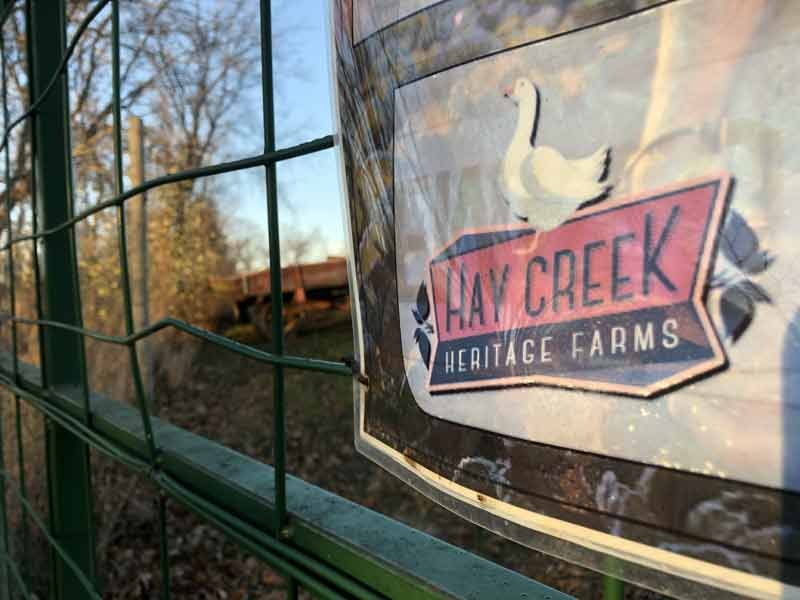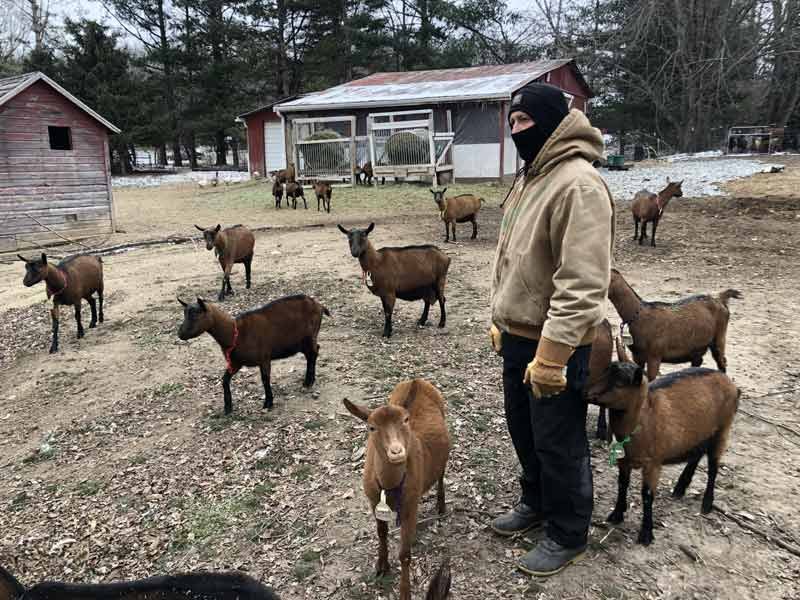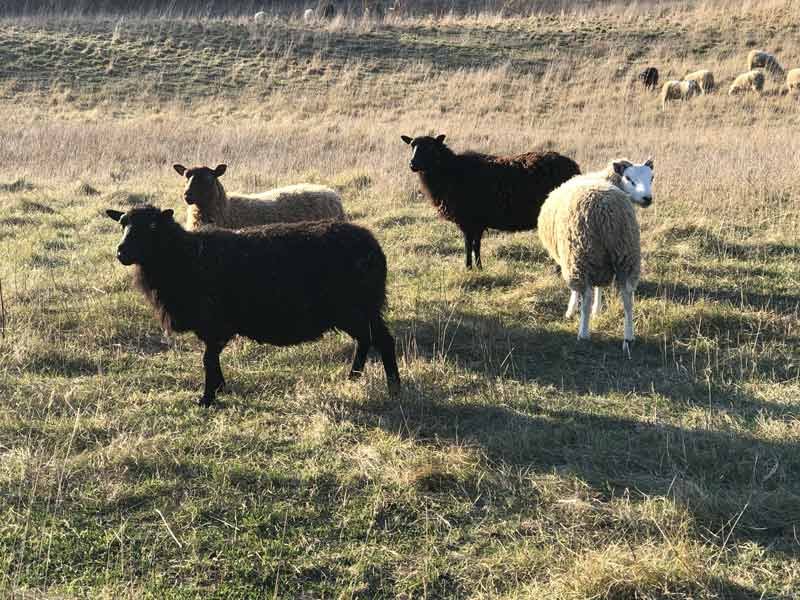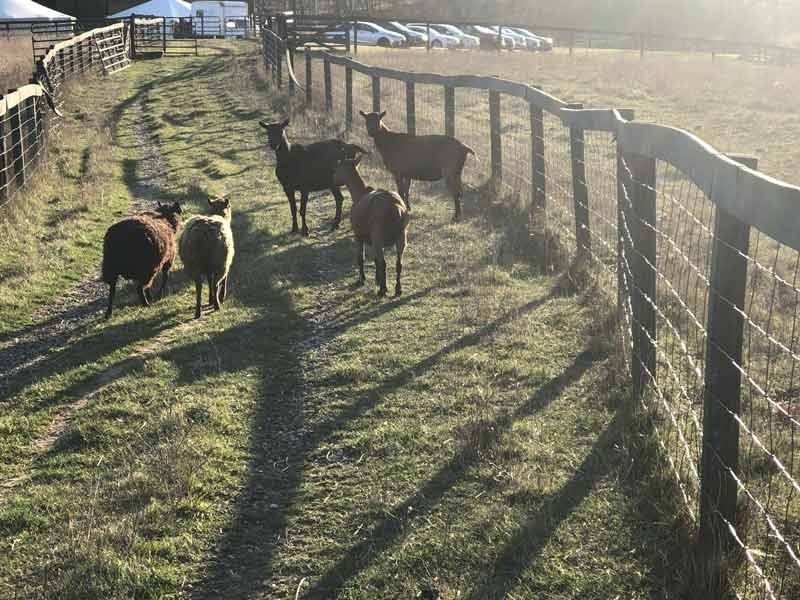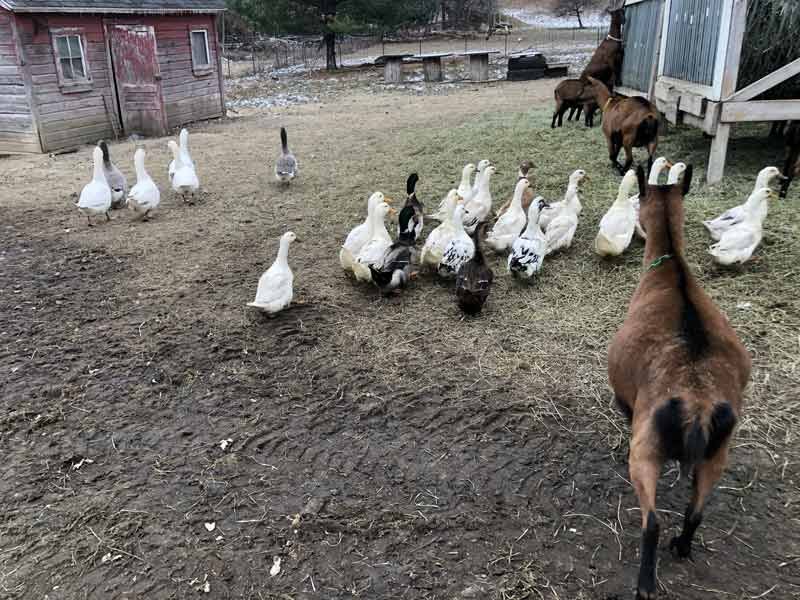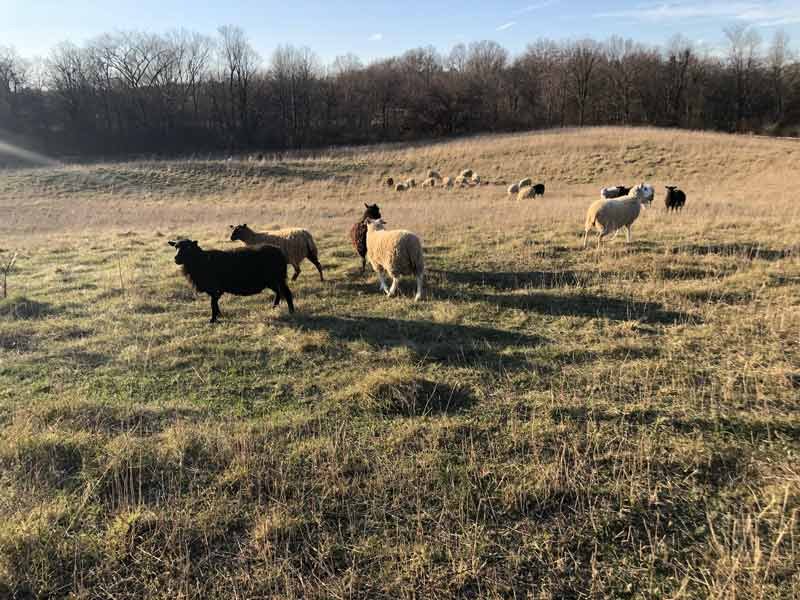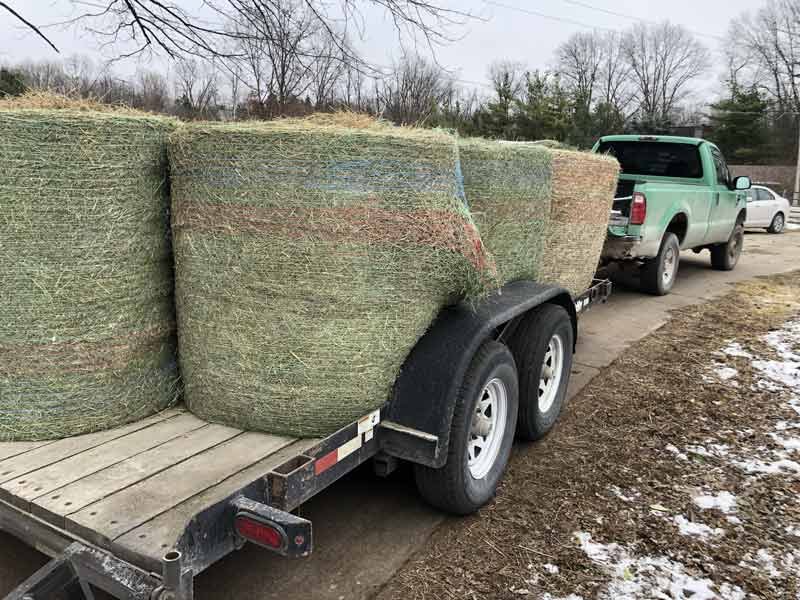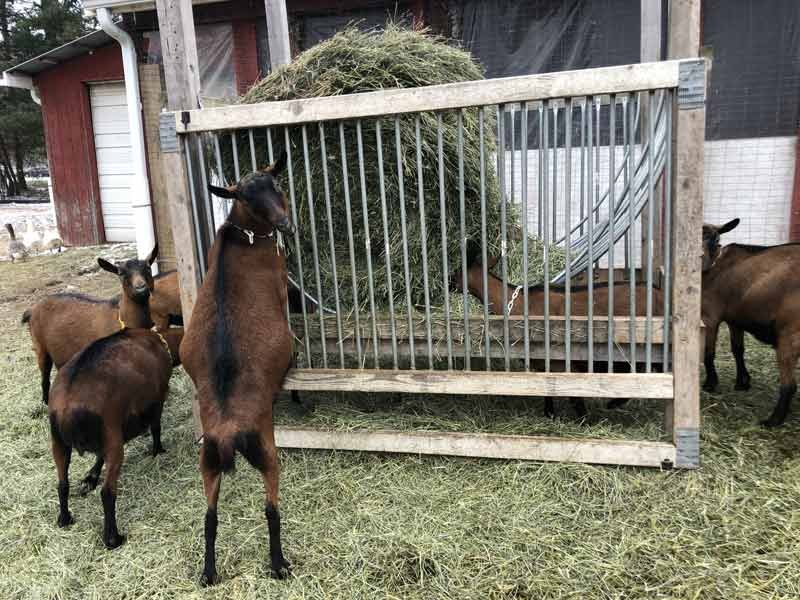Focus on farmers: Hay Creek Heritage Farm
Giving Our Heritage Good Pasture
Recently, Robin Hills Farm had a chance to walk the fields with Nate Oswald. He’s the co-founder, with his wife, Nicole Robidoux, of Hay Creek Heritage Farms, nestled on the banks of Hay Creek. They started raising sheep and goats twelve years ago. Their focus—sustaining rare heritage breeds—equips Hay Creek to make a distinctive contribution to our community. Here’s how Nate tells the story.
Robin Hills Farm (RHF): Why did you get into farming?
Nate: I grew up around farming and as an adult, well it was a combination of things. First, just the love of working with livestock. Then wanting to raise animals at the highest animal welfare standards and raising livestock on open pastures. And I guess you’d say enjoying being part of the movement of the farming community to more of like “micro-local” selling to where people locally can see how the animals are raised, how they're treated and basically just connecting with a local customer base.
RHF: So, what is it that you like most about connecting locally?
Nate: It’s great to be able to bring fresh meat and nutritious vegetables to market. Meeting customers, meeting the people that we sell to, getting to know them and having them get to know us is really satisfying.
RHF: Tell us more about heritage breeds.
Nate: We focus on endangered heritage livestock. We raise Shetland sheep which is a Scottish breed and known as an ancient ”landrace” or domestically adapted breed of northern short-tailed sheep. We raise Cheviot sheep as well which are originally from the border country between England and Scotland. Our black and brown ones are Shetland ewes. The white sheep are the Cheviot/Shetland cross. They’re meant to be raised out in open pasture. They all have big thick wool coats during the winter which is specific to the breed. They’re hardy, good lambers and long-lived.
RHF: How do you raise them?
Nate: We raise them with pre-industrialized agricultural methods to high animal welfare standards on a small scale. They live outside in open pasture environments where they’re able to act normally. That’s in contrast to CAFO--Concentrated Animal Feeding Operations--where they raise livestock inside or stuffed in an area. Heritage breeds live longer because they live at a higher level of animal welfare. So, this is the antithesis of the concentrated animal feedlot operations.
RHF: Does this make a difference for your customers?
Nate: Definitely. When you buy our meat locally, it's nutrient dense, it's fresh, it's well taken care of. The content of the food the CAFO’s feed their lambs is often just corn and they mix in vitamin compounds. And if you go to an operation that is an intensified animal feed lot they mix in hormones or antibiotics into the feed as well to make them grow faster. There is none of that with our lambs. And you can tell. If you look at our fresh lamb that’s been prepared for sale, it's dark red because it's high in iron content from the grass feed which is what the sheep would eat naturally.
Plus, with us, there is traceability. You know where the animal was raised and where the meat comes from. It doesn't ship all the way across the country. And that reduces the amount of fuel used. So, this approach just connects all the local elements together and brings more of a sense of community.
RHF: How about your connection to other farmers?
Nate: The relationships we build with other farmers are essential. An important part is that they are financially beneficial to all parties. So, for example, my hay farmer down in Maybee Michigan. I'm one of his biggest customers. It's great for him because he doesn't have to deal with a hundred people. He can deal with just a few and then I get good quality hay in return. When you're able to source products from other local farmers, you distribute that income around the community. It helps all of us.
RHF: What challenges do you face doing this?
Nate: Our main challenge in growing our farm and our business is the accessibility to land, so being here at Robin Hills Farm is great for us. We're able to grow our herds on land that is rich pasture and is in close proximity to us at our home farm in Pinckney. At the Pinckney farm, we have 12 acres of pasture where we raise all of our Oberhasli dairy goats. They give birth there and we raise them there. And we grow about 2 1/2 acres of certified organic vegetables there as well. So having pasture here at Robin Hills allows us to grow to the next level from more of a hobby farm model to a volume that opens up avenues for us to supply more products.
Plus, we share the educational focus of Robin Hills Farm—to support the growth of local farms and the importance of local agriculture. It’s a really advantageous relationship and we feel fortunate to have met the team here and to continue to grow with them.
RHF: So, if there was one message you would want to communicate to the public, what would that be?
Nate: I would say, “Get to know your farmer.” Because a lot of labor and the love we put into farming is not generally well known. Build that relationship with your local farmer and then find products that you like and be willing to pay a little bit extra for it because you're supporting your local agriculture and all those involved.
At Hay Creek Heritage Farm we look forward to growing and serving more of our local community. Come on out some time and experience the heritage that’s thriving here in good pasture.


